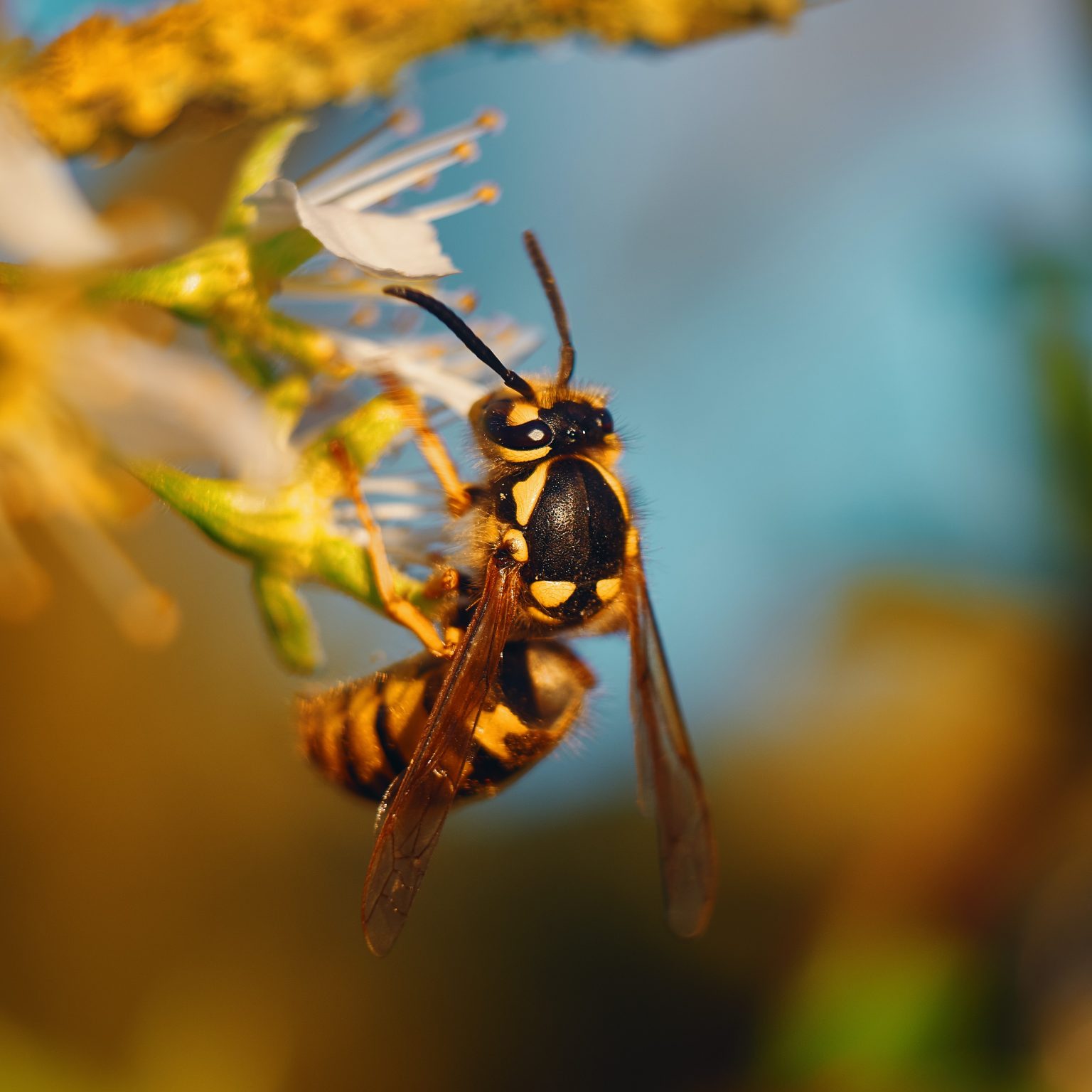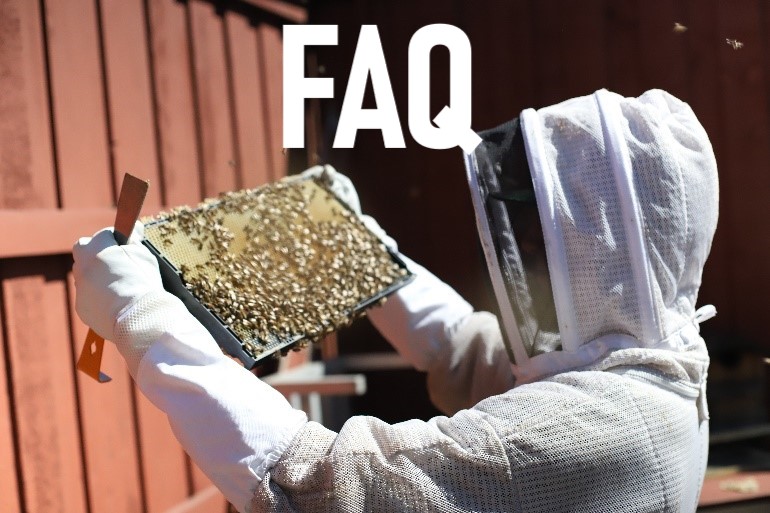
The Benefits of Wasps
Before you swat a stinging wasp away from your next picnic, pause to consider the delicate and beautiful hammer orchid. The Australian flowers evolved to resemble the rear end of a female thynnine wasp. It's a ruse to attract male thynnine wasps.
When a passing wasp makes his move on the flower — tries to have sex with it, in other words — he inadvertently deposits pollen on the orchid's stigma. Without amorous wasps, these remarkable flowers would never bloom again.
That intricate relationship between flower and insect is one of many ways stinging wasps, or aculeate wasps, benefits ecosystems, human health, and the economy, according to a new review paper by scientists at University College London and the University of East Anglia in the United Kingdom.
Do Wasps Benefit the Environment?
Published in Biological Reviews, the journal of the Cambridge Philosophical Society, the study is the most comprehensive meta-analysis of aculeate wasps to date, drawing on more than 500 scientific papers.
These insects, however, have a PR problem. They're unpopular with the general public and researchers alike. That attitude has resulted in gaping holes in scientific knowledge about wasps' role in ecosystems, the researchers said and limited our understanding of threats posed to wasps by urbanization, climate crises, and more.
Since spring is when queen wasps start founding colonies across temperate climates, it's the perfect time to take a second look at insects that, researchers argue, have been overlooked for too long.
"Everyone just kind of associates (wasps) with annoying them at barbecues or beers gardens," said lead study author Ryan Brock, a doctoral student in evolutionary ecology at the University of East Anglia. "It's always like: What is the point of wasps?"
Brock explained that the 33,000-odd varieties of stinging wasps included in the new study do more than hover, menacingly, near the potato salad.
"The two main things that wasps are doing for our ecosystems are as pest controllers and as pollinators," he said. Nearly 1,000 plant species may be pollinated by stinging wasps, found the review, including 164 species, such as the hammer orchid, that rely on wasps alone for pollination.
Should stinging wasps disappear overnight, those 164 plant species would be lost.
What Benefit do Wasps Provide?
The insects are also agile predators. "Wasp species that live in large colonies are fantastic at hunting other insect species," Brock said. Without wasps, Brock said there could be an explosion in caterpillars and aphids. That, in turn, could decimate backyard gardens and crop yields.
Insects eating other insects contribute an estimated $417 billion to the world's economy each year, the study said. Insect pollination, meanwhile, adds more than $250 billion to the global economy.
While pest control and pollination are stinging wasps' most prominent roles in the natural world, coauthor Seirian Sumner explained that wasps' other behaviors — what she called "ecosystem services" — are just as fascinating.
"They can strip a bird clear of meat within a few hours. They disperse seeds," said Sumner, a professor of behavioral ecology at the University College London, noting that both of these behaviors contribute to thriving ecosystems. She pointed to wasps' potential to contribute to human health, too.
"Wasps have medicinal properties in their saliva. Mostly, it's antibiotics," Sumner said, explaining that wasps' saliva helps preserve the paralyzed prey they feed their young. The medicinal value of wasps, though, is mainly unexploited, she said. "Their venom sacks are essentially a pharmacy cabinet waiting to be opened."










